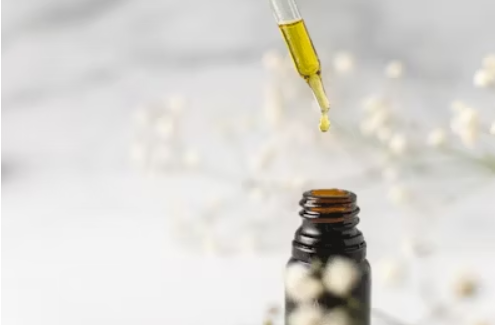The Role of CBD Products in Modern Cannabis Dispensaries

In recent years, the landscape of cannabis dispensaries has undergone a significant transformation. With the legalization of cannabis in various regions, dispensaries have evolved from niche shops into thriving businesses that cater to an expanding market of consumers. One of the most noteworthy developments in this space is the rise of CBD products. Cannabidiol (CBD) has gained immense popularity and has become a staple in modern dispensaries, appealing to a diverse audience with varying needs and preferences.
Understanding CBD: The Basics
CBD is a non-psychoactive compound found in the cannabis plant. Unlike its more famous counterpart, tetrahydrocannabinol (THC), CBD does not produce the “high” associated with cannabis use. Instead, it is lauded for its potential therapeutic benefits, which have been supported by a growing body of research. Consumers seek out CBD for various reasons, including relief from anxiety, chronic pain, and inflammation, as well as for its potential to improve sleep quality.
As awareness of CBD’s benefits expands, so does the variety of CBD products available on the market. From tinctures and oils to edibles and topicals, dispensaries now offer an extensive range of options to cater to a broad audience. Those browsing CBD products at modern dispensaries will find a range that spans wellness-focused tinctures to topicals designed for localized relief.
See also: Capital Cartridge: Revolutionizing Ammunition Technology
The CBD Product Spectrum
The increasing popularity of CBD has led to a diversification of products available in cannabis dispensaries. Here are some common types of CBD products you might find:
1. CBD Tinctures
CBD tinctures are liquid extracts that can be taken sublingually (under the tongue) for quick absorption. They come in various concentrations, allowing users to choose the potency that best suits their needs. Tinctures are often favored for their ease of use and fast-acting effects.
2. CBD Oils
Similar to tinctures, CBD oils come in bottles with droppers for precise dosing. Many consumers appreciate the versatility of CBD oil, as it can be taken alone or added to food and beverages. Brands offer flavored options, making them more palatable for those who may find the earthy taste of pure CBD less enjoyable.
3. CBD Edibles
CBD-infused edibles, such as gummies, chocolates, and beverages, have skyrocketed in popularity. These products provide a discreet and tasty way to consume CBD. Edibles are particularly appealing to those who may be hesitant to try other forms of consumption. However, it’s important for consumers to note that edibles can take longer to produce effects due to the digestion process.
4. CBD Topicals
Topicals such as creams, balms, and salves are designed for localized application. Many users apply CBD topicals to areas of discomfort, such as sore muscles or joints. These products allow for targeted relief without the psychoactive effects associated with other cannabis products.
5. CBD Vapes
For those looking for rapid effects, CBD vape products provide an efficient method of consumption. Inhalation allows for quick absorption into the bloodstream, making vapes a popular choice among users seeking immediate relief.
The Impact of CBD on Dispensary Dynamics
The introduction of CBD products has significantly affected dispensary operations and customer interactions. Here’s how:
1. Expanding Customer Base
CBD products attract a wide range of customers, from seasoned cannabis users to individuals who may never have considered using cannabis before. People seeking alternative remedies for health issues are often drawn to CBD as a natural option, thus broadening the demographic appeal of dispensaries.
2. Evolving Staff Expertise
With the increasing demand for CBD, dispensaries have had to enhance their staff’s knowledge and expertise. Budtenders must be well-versed in the various types of CBD products, their benefits, and the science behind them. As consumers become more informed, they seek guidance on product selection based on their specific needs.
3. Regulatory Challenges
As the CBD market grows, so too do the regulatory complexities surrounding it. Dispensaries must navigate an evolving legal landscape, ensuring compliance with state and federal laws regarding CBD sales. Transparency in sourcing and manufacturing processes is essential for building trust with consumers.
Navigating the CBD Market
For consumers interested in exploring CBD products, it’s crucial to approach the market with awareness and caution. Here are some tips for making informed decisions:
1. Research Product Quality
Not all CBD products are created equal. Consumers should prioritize brands that provide third-party lab testing results, ensuring the product’s safety, potency, and purity. This transparency is vital for making educated choices and avoiding low-quality products.
2. Understand Dosage
Finding the right dose of CBD can vary from person to person. It’s advisable to start with a low dose and gradually increase it while monitoring effects. Consulting with knowledgeable dispensary staff can also aid in determining appropriate dosages.
3. Consult Healthcare Professionals
For individuals seeking CBD for specific health concerns, consulting with a healthcare professional is recommended. A medical expert can provide personalized advice and help integrate CBD into a broader health and wellness plan.
Conclusion
CBD products play an integral role in modern cannabis dispensaries, shaping the way these establishments operate and engage with consumers. With a vast array of options available, from tinctures to topicals, CBD caters to a diverse audience, facilitating broader acceptance of cannabis as a therapeutic avenue. As the industry continues to evolve, it is essential for consumers to remain informed and discerning in their choices. Embracing CBD as part of the modern dispensary experience signals a shift toward wellness-focused offerings that appeal to both recreational and medical users alike.
